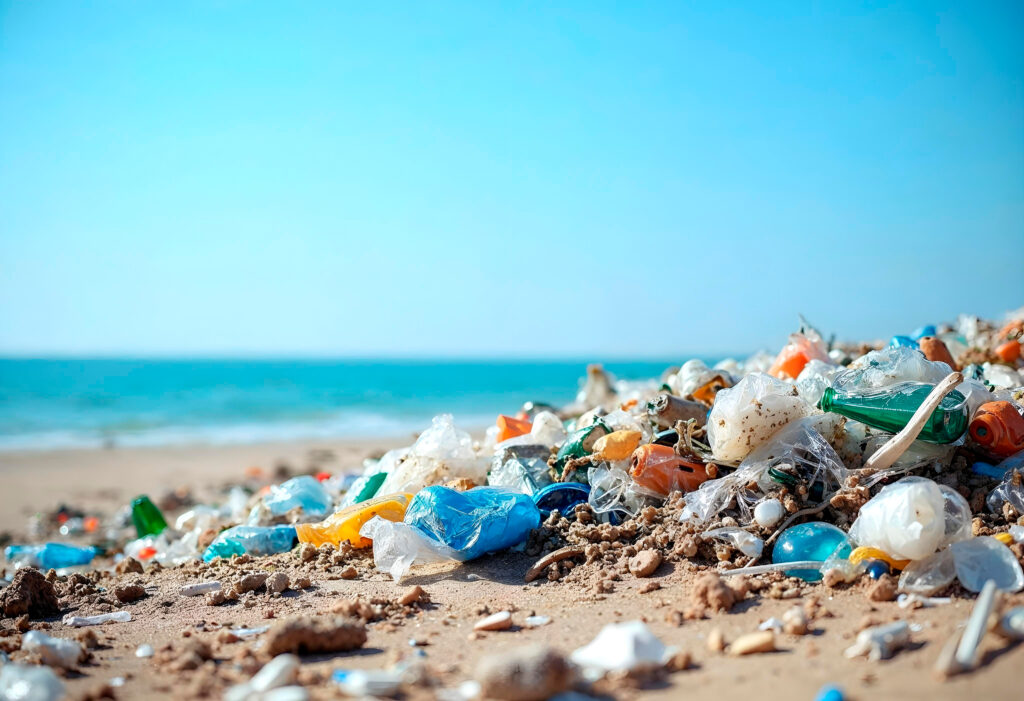New Study Reveals: Israel's Waters Have Become One of the World's Largest Marine Plastic Reservoirs
01.11.25
A groundbreaking study conducted in collaboration between the Israel Oceanographic & Limnological Research (IOLR) and the reveals alarming findings: the eastern Mediterranean has become a silent graveyard for plastic waste, with the seabed off Israel’s coast containing one of the highest plastic concentrations in the world – up to 5,354 items per square kilometer.
The study was initiated by Dr. Yael Segal, Head of the Mediterranean Monitoring Program at IOLR, with student Xing-Yu Li conducting the survey as part of his master’s thesis under the supervision of Prof. Revital Bookman, Head of the Dr. Moses Strauss Department of Marine Geosciences at the Charney School. The research team developed an innovative methodology to track plastic pathways from land to seafloor and decode the mechanisms driving its accumulation.
The findings show that plastic bags and packaging that we use for just a few minutes sink to depths of over 1,000 meters and remain trapped there for decades, even centuries. Over 90% of the marine waste collected in Israel’s area consists of thin plastic bags and packaging. For comparison, most measurements in recent years off the coasts of Spain, Italy, Greece, and Turkey showed only tens to hundreds of items per square kilometer.
The study identifies terrestrial flows from Israel, Egypt, and Turkey, as well as shipping activities, as the primary sources of pollution. Notably, Israel’s fishing industry contributes minimally to the pollution thanks to stringent environmental regulations. The research, published in Marine Pollution Bulletin, represents a call for coordinated regional action to address this growing environmental crisis.




